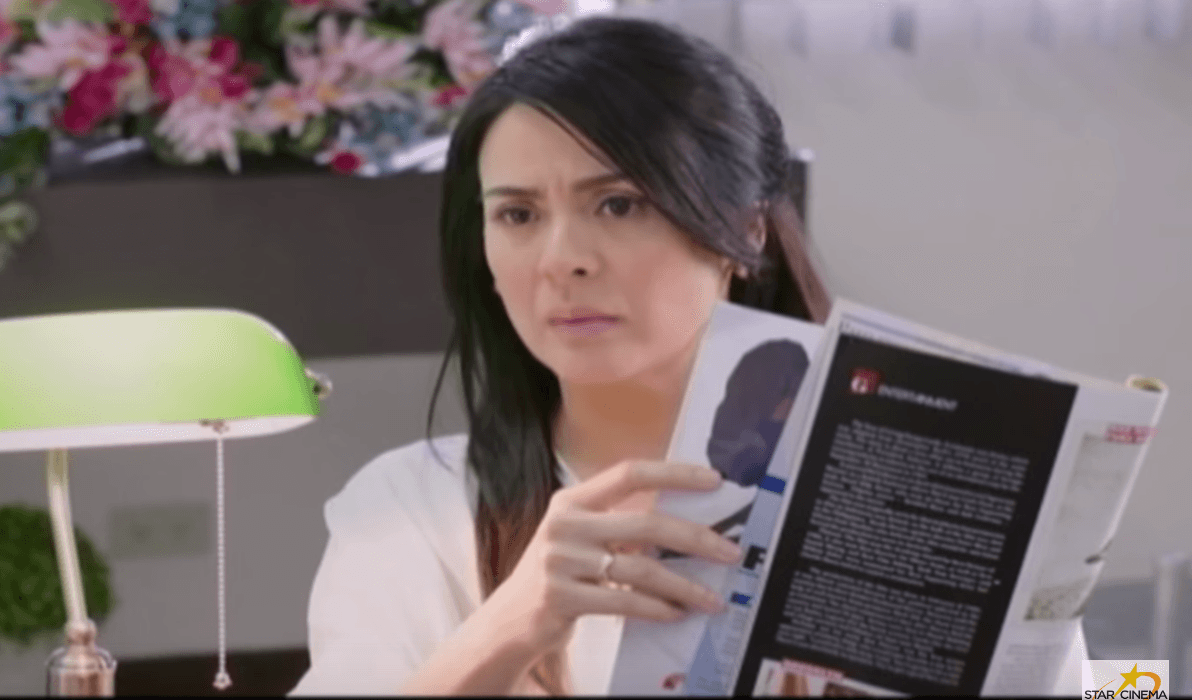SUMMARY
This is AI generated summarization, which may have errors. For context, always refer to the full article.

Love Me Tomorrow is a lot like the youngsters that its director Gino Santos loves to depict in his films – full of promise but doomed to fail.

All in the set-up
The promise is all in the set-up.

Love Me Tomorrow opens with Christy (Dawn Zulueta), a middle-aged woman who just lost her husband to stroke and her kids to adulthood. Alone and with only the clothes designing to keep her busy, she asks herself (in the typical Star Cinema voice-over fashion) if there is anything else a woman with her circumstances can live for.
JC (Piolo Pascual), the thirty-something resident DJ of a club who is fast turning into a relic within the circle where he finds his identity, seems to be the answer to Christy’s question. After a few awkward chance encounters, the two unsurprisingly fall in love, notwithstanding the observable gap in age. Janine (Coleen Garcia), the twenty-something self-styled model and promoter of JC’s club, has always been pining for JC’s attention.
Santos, his frequent collaborator Jeff Stelton, and lifestyle blogger G3 San Diego come up with a familiar world where age is both an asset and a liability. There is an admirable attempt to flesh out the culture that is on its surface is a melting pot for people of varying maturities and background but on the inside is fueled by outward appearances.
The film deliberately mines a lot of its humor from the awkwardness of older women hanging out in hip and trendy places, but the comedy only reinforces Santos and his team’s goal of enunciating their characters’ desperation to act outside their age in an effort to belong in an era where age is supposedly just a number.
Romance rears its ugly head
The film is more than fluent in depicting its environment and its values. Santos, whose The Animals (2012) and #Y (2014) explore the dilemmas of self-entitled upper-crust kids, is clearly more comfortable in shaping a milieu that he is familiar with. When tasked to sneak outside his comfort zone, he more often than not stumbles, as in the case of Ex with Benefits (2015) and Lila (2016), films where he is forced to follow rigid formulas that are only minutely peppered by his interests with the present-day youth’s complex psychology.

Love Me Tomorrow again showcases Santos as this conflicted filmmaker who is eager to present an intriguing milieu that forces his characters to conveniently cross the borders set by their birthdays but is betrayed by an insistence to keep everything within the bounds of a tried and tested formula. The film flounders when romance rears its ugly head.
From showing hints of a complicated psychology that would drive diverse characters like Christy, JC, and Coleen to converge in a level that is more intimate than usual, Love Me Tomorrow surrenders itself to the convenience of love. See, that the film is a love story is not the problem here. It is the fact that the film’s concept of love is so elementary that it betrays whatever complexity the film’s appealing set-up promises.

The film sadly doesn’t depict love beyond the definitions provided for by fairy tales. It is just a cure-all, a convenient plot device, the deus ex-machina that would answer all the questions as to why Christy fell for DJ despite his many insecurities, as to why DJ chose Christy among all the girls he is forced to hang out with on a nightly basis, as to why Janine is putting up with being the third wheel in all of this. The film simply neglects to dissect the romance and forces its audience to rely on the power of the heart.
Lousy love
The failure is in the formula and the execution.

It isn’t just that the love that is the core of the film is so insultingly simplistic. Santos also moves the love story shoddily, relying heavily on the grooves of the formula and the supposedly innate charms of his leads to keep the romance interesting.
However, the formula here is but a hindrance which pushes the film to make that drastic shift towards predictability. Pascual, Zulueta and Garcia are unconvincing as characters swept away by a flurry of easy emotions. There is a gross lack of effort in graduating the love story beyond the lazily written conversations, longing stares, embarrassingly directed love scenes, and the inexplicable tears and grimaces. The promising milieu is wasted for something so taxingly repeated, it’s gotten irrelevant.

Love Me Tomorrow, instead of being a contemporary tale of individuals trapped in an era of facile and noisy posturing, becomes nothing more than just another love story between adults of varying ages who share the same immaturity about the affairs of the heart as the film they are in. – Rappler.com
 Francis Joseph Cruz litigates for a living and writes about cinema for fun. The first Filipino movie he saw in the theaters was Carlo J. Caparas’ ‘Tirad Pass.’ Since then, he’s been on a mission to find better memories with Philippine cinema.
Francis Joseph Cruz litigates for a living and writes about cinema for fun. The first Filipino movie he saw in the theaters was Carlo J. Caparas’ ‘Tirad Pass.’ Since then, he’s been on a mission to find better memories with Philippine cinema.
Add a comment
How does this make you feel?
There are no comments yet. Add your comment to start the conversation.